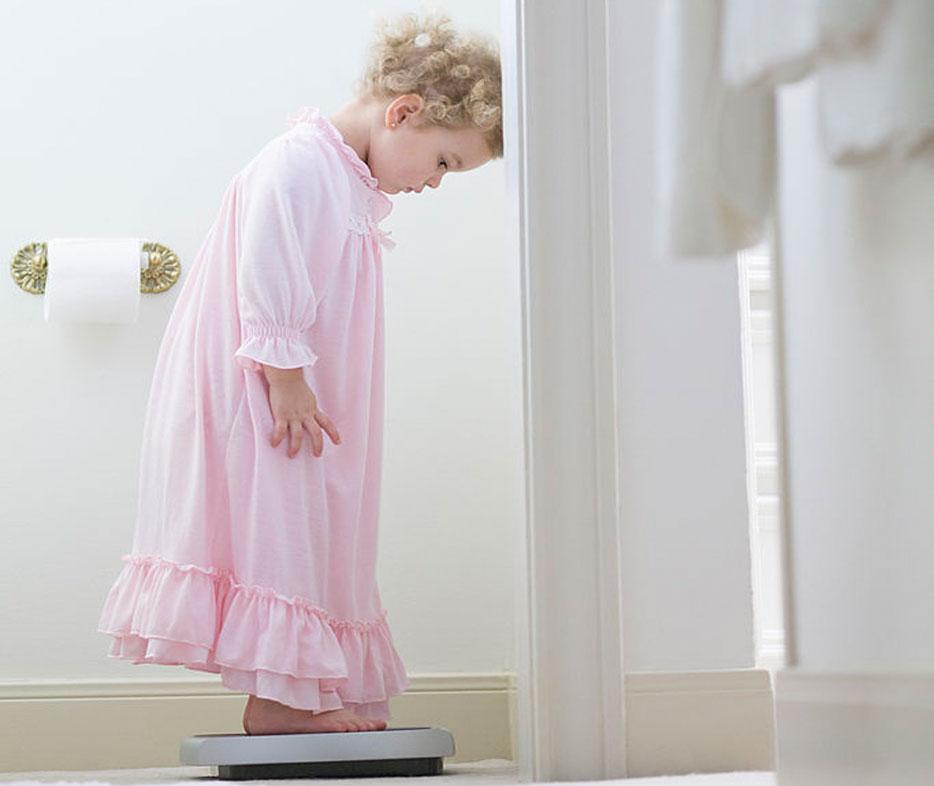Today’s parents are expected to play an active role in the fight against childhood obesity, but what happens when messages around ‘ideal’ shapes and sizes lead to kids as young as three saying they are dissatisfied with their body?
According to a team of researchers that has collated the results of 16 body image studies, up to 70 per cent of children under the age of six have ‘body dissatisfaction’.
While questioning many of the studies’ findings and methodology, they concluded that “children between the ages of three and six years already have negative attitudes towards fat and a preference for a thin body,” lead author Dr Gemma Tatangelo writes in Body Image journal.
The reviewed studies all asked children to select an ideal figure that was either thinner or bigger compared to how they saw their own body. Some said their body should be bigger and others wanted to be thinner.
According to Dr Tatangelo, the findings may suggest that kids as young as three are “already emotionally invested in the thin ideal”. But she also urged caution as the methods of determining the youngsters’ ‘body dissatisfaction’ varied so widely.
While some research used questionnaires to assess body image (and found 21 per cent of preschool girls were concerned about their weight), those employing interviewing techniques found 27 of 30 girls liked the way they looked, although a quarter of them named one thing they didn’t like.
“It is important to acknowledge that children under the age of five demonstrate inconsistencies and inaccuracies in their judgments of their own body size,” she told the Herald Sun .
Researchers also contended with comprehension difficulties and short attention spans typical of this age group.
Despite the statistical glitches, Dr Tatangelo stressed that body dissatisfaction and societal (family, peers and media) influences on body image were important issues to address, even as early as preschool.
Body dissatisfaction is thought to be “highly predictive of later eating disorders and chronic health problems,” she explained.
HOW TO TALK TO YOUR CHILD ABOUT WEIGHT
Meanwhile, parents are left to tread the tricky line between instilling their kids with a healthy body image that’s free of self-judgment while being mindful that a third of New Zealand children are obese or overweight.
Dietitian Jocelyn Hunter Clarke suggests parents approach the issue by determining whether their child’s BMI (Body Mass Index) is in a healthy range.
Unlike adults, children’s BMIs change as they mature and patterns of growth differ between boys and girls, so their BMI must be “compared against the BMI age and gender percentile charts which are designed specifically for childrens,” says Clarke.
After this, if parents have legitimate concerns to address, the following strategies may help to avoid sending potentially damaging ‘ideal’ body messages.
• Model ‘healthy habits’ around diet and exercise, across the whole family so one child doesn’t feel singled out, rather than using language like fat, thin, big, small, greedy, picky, etc.
• Try to limit talking about your own figure or looks. If parents are obviously obsessed with slimming down etc, children are more likely to worry about their own bodies.
• Avoid labelling food as ‘good’ Vs ‘bad’ or ‘junk’ as this creates judgment around eating. Instead, talk to children about making ‘healthy choices’ and teach them that all foods can fit into a balanced diet, depending on how often they are eaten.

-scaled.jpg)
